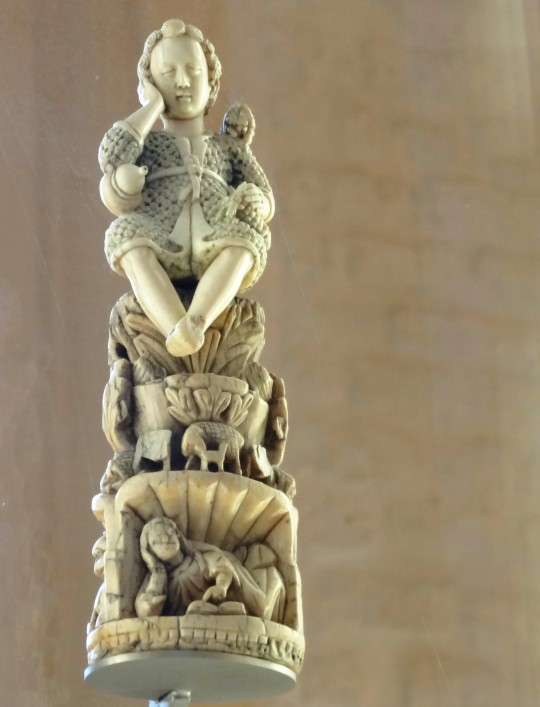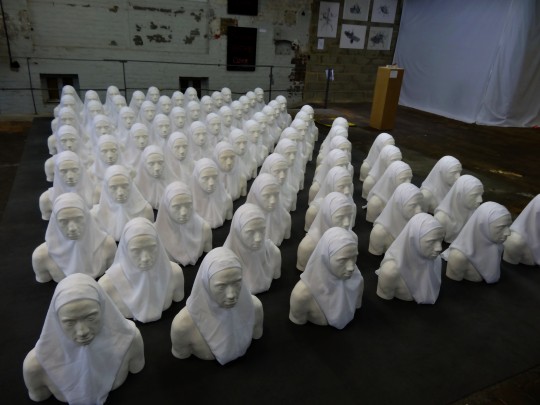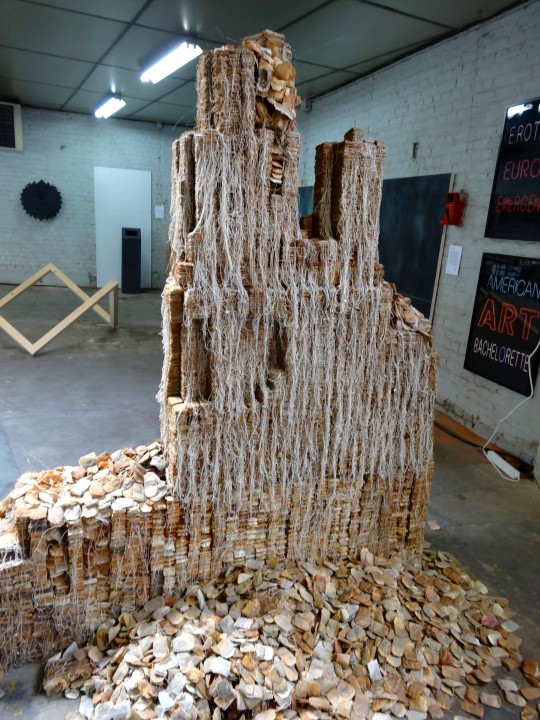#monsieur de châtillon
Explore tagged Tumblr posts
Photo






Je reviens à mon projet de présenter la plupart de mes 55000 photos (nouveau compte approximatif. On se rapproche du présent !).
2015. Douai.
- les 3 premières : Musée de la Chartreuse
- “Le Bon Pasteur” - Goa, XVIIe s.
- pion d'échec - "Attaque d'un Fort" - Angleterre, 1250
- Louis-François Lejeune : ''Episode de la Campagne de Prusse - M.de
Châtillon” (bon apparemment il n’est pas content qu’on lui ait piqué son slip)
- les 3 suivantes : expo “Hybride”:
- Ch.Beaufort : “Photosphère”
- Mehdi-Georges Lahlou : “72 Vierges”
- Armen Rotch : “Continuum” (fait avec des sachets de thé)
#souvenirs#douai#nord#chartreuse de douai#musée de la chartreuse#chartreuse#bon pasteur#goa#pion#échecs#médiéval#louis-françois lejeune#monsieur de châtillon#moustache#hybride#mehdi-georges lahlou#couleur#armen rotch#thé#sachet de thé
4 notes
·
View notes
Text
Details Concerning The Cheese-Dairies Of Pontarlier
Volume 1: Fantine; Book 2: The Fall; Chapter 4: Details Concerning The Cheese-Dairies Of Pontarlier
Now, in order to convey an idea of what passed at that table, we cannot do better than to transcribe here a passage from one of Mademoiselle Baptistine’s letters to Madame Boischevron, wherein the conversation between the convict and the Bishop is described with ingenious minuteness.
". . . This man paid no attention to any one. He ate with the voracity of a starving man. However, after supper he said:
“‘Monsieur le Curé of the good God, all this is far too good for me; but I must say that the carters who would not allow me to eat with them keep a better table than you do.’
“Between ourselves, the remark rather shocked me. My brother replied:—
“‘They are more fatigued than I.’
“‘No,’ returned the man, ‘they have more money. You are poor; I see that plainly. You cannot be even a curate. Are you really a curé? Ah, if the good God were but just, you certainly ought to be a curé!’
“‘The good God is more than just,’ said my brother.
“A moment later he added:—
“‘Monsieur Jean Valjean, is it to Pontarlier that you are going?’
“‘With my road marked out for me.’
“I think that is what the man said. Then he went on:—
“‘I must be on my way by daybreak to-morrow. Travelling is hard. If the nights are cold, the days are hot.’
“‘You are going to a good country,’ said my brother. ‘During the Revolution my family was ruined. I took refuge in Franche-Comté at first, and there I lived for some time by the toil of my hands. My will was good. I found plenty to occupy me. One has only to choose. There are paper mills, tanneries, distilleries, oil factories, watch factories on a large scale, steel mills, copper works, twenty iron foundries at least, four of which, situated at Lods, at Châtillon, at Audincourt, and at Beure, are tolerably large.’
“I think I am not mistaken in saying that those are the names which my brother mentioned. Then he interrupted himself and addressed me:—
“‘Have we not some relatives in those parts, my dear sister?’
“I replied,—
“‘We did have some; among others, M. de Lucenet, who was captain of the gates at Pontarlier under the old régime.’
“‘Yes,’ resumed my brother; ‘but in ’93, one had no longer any relatives, one had only one’s arms. I worked. They have, in the country of Pontarlier, whither you are going, Monsieur Valjean, a truly patriarchal and truly charming industry, my sister. It is their cheese-dairies, which they call fruitières.’
“Then my brother, while urging the man to eat, explained to him, with great minuteness, what these fruitières of Pontarlier were; that they were divided into two classes: the big barns which belong to the rich, and where there are forty or fifty cows which produce from seven to eight thousand cheeses each summer, and the associated fruitières, which belong to the poor; these are the peasants of mid-mountain, who hold their cows in common, and share the proceeds. ‘They engage the services of a cheese-maker, whom they call the grurin; the grurin receives the milk of the associates three times a day, and marks the quantity on a double tally. It is towards the end of April that the work of the cheese-dairies begins; it is towards the middle of June that the cheese-makers drive their cows to the mountains.’
"The man recovered his animation as he ate. My brother made him drink that good Mauves wine, which he does not drink himself, because he says that wine is expensive. My brother imparted all these details with that easy gayety of his with which you are acquainted, interspersing his words with graceful attentions to me. He recurred frequently to that comfortable trade of grurin, as though he wished the man to understand, without advising him directly and harshly, that this would afford him a refuge. One thing struck me. This man was what I have told you. Well, neither during supper, nor during the entire evening, did my brother utter a single word, with the exception of a few words about Jesus when he entered, which could remind the man of what he was, nor of what my brother was. To all appearances, it was an occasion for preaching him a little sermon, and of impressing the Bishop on the convict, so that a mark of the passage might remain behind. This might have appeared to any one else who had this, unfortunate man in his hands to afford a chance to nourish his soul as well as his body, and to bestow upon him some reproach, seasoned with moralizing and advice, or a little commiseration, with an exhortation to conduct himself better in the future. My brother did not even ask him from what country he came, nor what was his history. For in his history there is a fault, and my brother seemed to avoid everything which could remind him of it. To such a point did he carry it, that at one time, when my brother was speaking of the mountaineers of Pontarlier, who exercise a gentle labor near heaven, and who, he added, are happy because they are innocent, he stopped short, fearing lest in this remark there might have escaped him something which might wound the man. By dint of reflection, I think I have comprehended what was passing in my brother’s heart. He was thinking, no doubt, that this man, whose name is Jean Valjean, had his misfortune only too vividly present in his mind; that the best thing was to divert him from it, and to make him believe, if only momentarily, that he was a person like any other, by treating him just in his ordinary way. Is not this indeed, to understand charity well? Is there not, dear Madame, something truly evangelical in this delicacy which abstains from sermon, from moralizing, from allusions? and is not the truest pity, when a man has a sore point, not to touch it at all? It has seemed to me that this might have been my brother’s private thought. In any case, what I can say is that, if he entertained all these ideas, he gave no sign of them; from beginning to end, even to me he was the same as he is every evening, and he supped with this Jean Valjean with the same air and in the same manner in which he would have supped with M. Gédéon le Prévost, or with the curate of the parish.
“Towards the end, when he had reached the figs, there came a knock at the door. It was Mother Gerbaud, with her little one in her arms. My brother kissed the child on the brow, and borrowed fifteen sous which I had about me to give to Mother Gerbaud. The man was not paying much heed to anything then. He was no longer talking, and he seemed very much fatigued. After poor old Gerbaud had taken her departure, my brother said grace; then he turned to the man and said to him, ‘You must be in great need of your bed.’ Madame Magloire cleared the table very promptly. I understood that we must retire, in order to allow this traveller to go to sleep, and we both went upstairs. Nevertheless, I sent Madame Magloire down a moment later, to carry to the man’s bed a goat skin from the Black Forest, which was in my room. The nights are frigid, and that keeps one warm. It is a pity that this skin is old; all the hair is falling out. My brother bought it while he was in Germany, at Tottlingen, near the sources of the Danube, as well as the little ivory-handled knife which I use at table.
“Madame Magloire returned immediately. We said our prayers in the drawing-room, where we hang up the linen, and then we each retired to our own chambers, without saying a word to each other.”
5 notes
·
View notes
Link
Inéligibilité à vie des élus condamnés, interdiction d’embaucher les membres de sa famille… Jean-Luc Mélenchon s’est montré intraitable sur l’intégrité des élus lundi soir lors du grand débat de TF1. Pour son vieil ennemi Christian Schoettl, élu de l’Essonne, le candidat de «La France insoumise» est pourtant loin d’être irréprochable en la matière.

Christian Schoettl – prononcez «cheutl» – est maire de Janvry, un village champêtre du nord-est de l’Essonne, et ancien conseiller départemental du coin. Aujourd’hui, il bat la campagne dans la circonscription de Limours-Longjugmeau, avec le soutien d’une partie de l’UDI. Mais ce n’est pas ce qui l’a fait connaître : ce centriste doit surtout sa renommée à ses coups d’éclat en justice. Il a notamment fait condamner à dix-huit mois de prison avec sursis et 15.000 euros d’amende Xavier Dugoin, l’ancien président RPR du conseil général, qui avait subtilisé 1.200 bouteilles de vin au département. Aujourd’hui, c’est à Jean-Luc Mélenchon qu’il s’attaque. Interview.
Capital : Vous ne partagez donc pas la conviction de Jean-Luc Mélenchon, selon qui la droite mériterait d’avoir un candidat «plus présentable» que François Fillon ?
Christian Schoettl : Ça va bien les rodomontades ! Jean-Luc Mélenchon est une espèce de matamore qui dénonce les dérives de ses adversaires en oubliant qu’il a fait à peu près la même chose. Quand je l’ai entendu, le 1er mars, déclarer depuis Concarneau, dans le Finistère, que les électeurs de droite «auraient le droit d’avoir un candidat qui puisse être présentable», j’ai pensé qu’il avait perdu la mémoire ou qu’il avait un sacré culot. Alors, on va lui faire une piqûre de rappel, et lui parler de sa propre désinvolture. Parce qu’en décembre 2009, c’est sa fille Maryline qu’il a fait embaucher par le conseil général de l’Essonne.
À lire aussi :
Gaspillages publics, népotisme et sinécures ont la vie dure
Le train de vie de nos élus fait valser nos impôts
Capital : Et pourquoi n’aurait-il eu pas le droit de le faire ?
Christian Schoettl : Mais parce qu’elle n’a pas été embauchée comme collaboratrice du groupe socialiste au conseil général. Là, le recrutement aurait été à la discrétion du politique, comme pour les attachés parlementaires d’un député. Mais en 2009, c’est en tant qu’agent administratif que Maryline Mélenchon a été engagée. Pour réaliser ce recrutement, la collectivité territoriale devait respecter les règles, notamment d’impartialité, qui s’appliquent à toute la fonction publique.
Quand une administration a un poste vacant, elle doit publier une offre d’emploi, recevoir les candidats et recruter le plus compétent, sans bien sûr se préoccuper de savoir quelle est son appartenance politique. Or, à l’issue de cette procédure de recrutement, qui voit-on arriver à un poste de «chargée de coopération» ? La fille d’un ancien vice-président du conseil général, par ailleurs toujours sénateur de l’Essonne. La fille de l’ami des présidents socialistes successifs du conseil général – à l’époque, c’est Michel Berson qui est à sa tête. Vous avouerez que c’est quand même une étrange coïncidence. D’autant plus étrange, que ce n’est pas la première.
>> A lire aussi : Jean-Luc Mélenchon, son patrimoine dépasse le million d'euros !
Capital : Vous voulez dire que ce n’est pas la première fois que Maryline est embauchée grâce à son père ?
Christian Schoettl : Son premier job, elle le décroche comme agent administratif à la mairie de Viry-Châtillon, toujours dans l’Essonne. On est en 1998 et elle a 24 ans. Son père est déjà vice-président du Conseil général. C’est, avec Julien Dray, l’un des leaders de la Gauche socialiste, un courant du PS qui entraine dans son sillage pas mal d’élus de l’Essonne. Justement, le lieutenant de Jean-Luc Mélenchon s’appelle Gabriel Amard, et c’est le maire de Viry-Châtillon. Mieux : on le surnomme «monsieur gendre», parce qu’il est le compagnon de Maryline. Si ce n’est pas du favoritisme, je voudrais qu’on me dise ce que c’est.
>> Sur ce sujet : Le recours de la fille de Jean-Luc Mélenchon rejeté par le tribunal
Capital : Que peut-on faire, selon vous qui connaissez bien les collectivités locales, pour empêcher ces dérives ?
Christian Schoettl : C’est une question de sens moral : les élus devraient être irréprochables. Mais que voulez-vous, ils ont toujours vécu très confortablement de l’argent public ; ils n’ont jamais connu les fins de mois difficiles des autres Français. Alors ils dépensent sans retenue les impôts payés par leurs concitoyens.
Voyez Jean-Luc Mélenchon, encore lui. J’ai là une facture adressée en décembre 1998 au Conseil général par une petite boite de communication événementielle, l’agence Eventissimo, et signée de Mélenchon lui-même. La commande concerne la «conception» artistique d’une carte de vœux, mais sans la fabrication ni l’impression. Cette simple «création» a coûté 94.671 francs soit 18.489 euros aux contribuables essonniens ! Et vous savez qui était la patronne d’Eventissimo ? Je vous le donne en mille : Isabelle Thomas, l’égérie du mouvement étudiant de 1986 contre la loi Devaquet, et animatrice l’aile gauche du PS avec Jean-Luc Mélenchon.
La facture de l’agence Eventissimo :

Tous droits réservés
À lire aussi :
La folie des grandeurs des élus engloutit des fortunes
Savez-vous combien coûtent les anciens présidents aux contribuables ?
Capital : Vous avez d’autres histoires de ce type ?
Christian Schoettl : Malheureusement oui ! Et ils montrent que Mélenchon a toujours fait preuve désinvolture avec l’argent public. Nous sommes toujours en 1998. A l’époque, il est chargé de l’information et de la communication au conseil général. Il passe commande d’une campagne de relations presse pour vanter les mérites de la Fête de la République à Euro RSCG, l’agence amie des socialistes, que dirigent Jacques Séguéla et Stéphane Fouks. Eh bien, ces 7 journées d’attachée de presse ont coûté 98.972 francs, soit 19.329 euros au conseil général ! Un beau cadeau aux copains.
La facture d’Euro RSCG :

Tous droits réservés
Capital : En 2007, vous avez enfin obtenu une victoire contre Jean-Luc Mélenchon…
Christian Schoettl : En effet. J’avais attaqué Mélenchon parce qu’en 2004, d’avril à juin, il avait utilisé pendant trois mois un véhicule avec chauffeur du conseil général. Or il n’y avait plus droit puisqu’il n’était plus au Conseil général. Cela pourrrait s’apparenter à un détournement de fonds public dont il a bénéficié, lui, et personne d’autre. J’ai porté plainte ce qui a conduit le procureur de la République à lui signifier un rappel à la loi sous la forme d’un avertissement solennel.
L’avertissement du procureur de Créteil :

Tous droits réservés
Capital : C’était peut-être pour un usage professionnel ?
Christian Schoettl : J’en doute. Jean-Luc Mélenchon était devenu sénateur. Pourquoi n’utilisait-il pas le généreux pool de voitures du Sénat si tel était le cas ? Vous savez, Mélenchon est un professionnel de la politique, qui a toujours vécu de la générosité des contribuables.
Tenez, un dernier exemple : entre 2000 et 2002, lorsqu’il était devenu ministre délégué à l’Enseignement professionnel, il n’a quasiment jamais plus mis les pieds au Conseil général. Mais plutôt que de démissionner, il a continué à percevoir une indemnité de 2.300 euros par mois. Au total, c’est 57.500 euros d’argent public qu’a perçu le conseiller fantôme. On en pense ce qu’on en veut, mais si la France de Mélenchon est insoumise, Jean-Luc n’est pas indifférent au fric.
Propos recueillis par Étienne Gingembre
1 note
·
View note
Text
Les hommes de sa vie
Le Duc d'Orléans
The men of his life
The young prince used to cross -dress during masked balls and other parties so as to openly please himself, and this did not upset his mother.
“Upon my arrival at the Louvre I would find a fair-haired Monsieur dressed as a woman. The Queen would say that he looked like me” - said the Grande Mademoiselle ( Monsieur’s cousine Anne- Marie- Louise d'Orléans). He was 18.
"He would probably like to do so most of the time, according to the Abbot of Choisy. “But his dignity prevented him to do so. Princes are restrained by their condition.
At night he would wear ear- pendants and beauty- patches and admired his reflection in the mirror, and he would be praised by his lovers"
Among his ‘favorites’ there are the Marquis de Châtillon, the Comte de Guiche, the Marquis d'Effiat, and the great love of his life, the Chevalier de Lorraine - “made as one paints the angels”. They shared a 30- year- old- long stormy relationship.
It seems that all his relationships were maintained on a sadomasochist route.




@ma-demoiselle-moon
#versailles#philippe d'orléans#comte de guiche#marquis d'effiat#chevalier de lorraine#monchevy#historical monchevy#he likes boys#queer#history#17th century
47 notes
·
View notes
Text
Affaire de pédophilie dans la Nièvre: à Châtillon-en-Bazois on "ne s'attendait pas à ça" 78682 homes
http://www.78682homes.com/affaire-de-pdophilie-dans-la-nivre-chtillon-en-bazois-on-ne-sattendait-pas-a
Affaire de pédophilie dans la Nièvre: à Châtillon-en-Bazois on "ne s'attendait pas à ça"
Ils « ne s’attendaient pas à ça » dans leur petit village: les habitants de Châtillon-en Bazois (Nièvre), racontaient mercredi leur surprise après la mise en examen d’un couple de la commune dans une vaste affaire de viols et agressions sexuelles sur des enfants. »Ce sont des gens en difficulté, monsieur a un passé assez lourd, régulièrement incarcéré pour des larcins, des vols, un petit peu de vente d’herbe. Mais de là à s’en prendre à des enfants, j’ai du mal à me l’imaginer »,…
homms2013
#Informationsanté
0 notes
Text
Pope: 'a culture of mercy renews hearts and opens up to a new reality'
(Vatican Radio) Pope Francis has sent a message of encouragement and thanks to members of the International Association for Charity (AIC) as it celebrates the 400th anniversary of the foundation of the first Confraternity of Charity by Saint Vincent de Paul in Châtillon, France.
This very first group has grown into today’s AIC, an international network for fighting against poverty, which now has over 150,000 volunteers in 53 countries.
In his message the Pope notes that true promotion of human dignity cannot take place without the proclamation of the Gospel.
“It is with joy, he writes, that I am spiritually united to you to celebrate this anniversary and I hope that your beautiful work continues its mission of bringing an authentic testimony of God's mercy to the poorest”.
Pope Francis points out that the Charities were born of the tenderness and compassion of Monsieur Vincent for the poorest and the marginalized.
“His work with them wanted to reflect the goodness of God towards his creatures. He saw the poor as the representatives of Jesus Christ, as the members of His suffering body. He understood that the poor too were called to build up the Church and to convert us”.
The Pope says that in the wake of Vincent de Paul, who had entrusted the care of these poor people to lay people, and especially to women, AIC aims to promote the development of the most disadvantaged and to alleviate their material, physical, moral and spiritual pain.
“It is in the Providence of God that the foundation of this commitment is to be found” he says.
For “what is Providence but the love of God who acts in the world and asks for our cooperation?” the Pope continues, encouraging AIC members to continue to accompany the person in full and to pay particular attention to the precarious living conditions of many women and children.
He says it is faith that allows us to perceive the reality of the person, his or her incomparable dignity which is not limited to material goods, to social, economic and political problems, but as a person created in the image and likeness of God, a brother, a sister, a neighbor for whom we are responsible.
This is why, Pope Francis continues, human promotion, the authentic liberation of man, does not exist without the proclamation of the Gospel “for the most sublime aspect of human dignity lies in this vocation of man to communicate with God”.
Pope Francis recalls that in the Bull of Indiction of the Extraordinary Jubilee of Mercy he expressed the hope that “the year to come will be steeped in mercy, so that we can go out to every man and woman, bringing the goodness and tenderness of God” and he invites all to pursue this path as the credibility of the Church goes through the path of merciful love and compassion that open to hope.
“This credibility, he concludes, passes also through your personal testimony: it is not only a question of meeting Christ in the poor, but that the poor perceive Christ in you and in your action. By being rooted in Christ's personal experience you can contribute to a "culture of mercy" that deeply renews hearts and opens up to a new reality”.
(from Vatican Radio)
from News.va http://ift.tt/2mskLnn via IFTTT from Blogger http://ift.tt/2msPaCG
0 notes